Inside: Use these Kindness games to teach kindness and kindness concepts in a fun, silly, hands-on way.
My kids love to play games, ever since they were little.
But life isn’t always a game.
Sometimes you have to pause the games you want to play in order to do chores or learn a new concept or take a shower.
But to encourage my kids to get their chores done, learn something new, or shower, we often turn it into a game or a “game” to increase their buy in and get them to want to participate.
We set a timer to beat the clock or we blast some music or we throw the folded socks into the laundry basket and play sock basketball.
Games are a great way to teach and a great way to encourage our kids to want to learn or try anything hard.
And educators have used games forever to teach all different kinds of concepts: Jeopardy for fact remembering, “Hangman” for spelling words (even though it needs a better name like Snowman or Spaceman or Guess in Ten), Math Dice for math facts, and Simon Says for following directions.
Because if we can gamify any concept we want to teach our kids, they’ll want to participate, they’ll have fun, they won’t even realize they’re learning, and they’ll remember the information more.
So to help teach social-emotional learning concepts like kindness and taking turns and being an includer, and being helpful, and being mindful of others, we can of course turn to games to help.
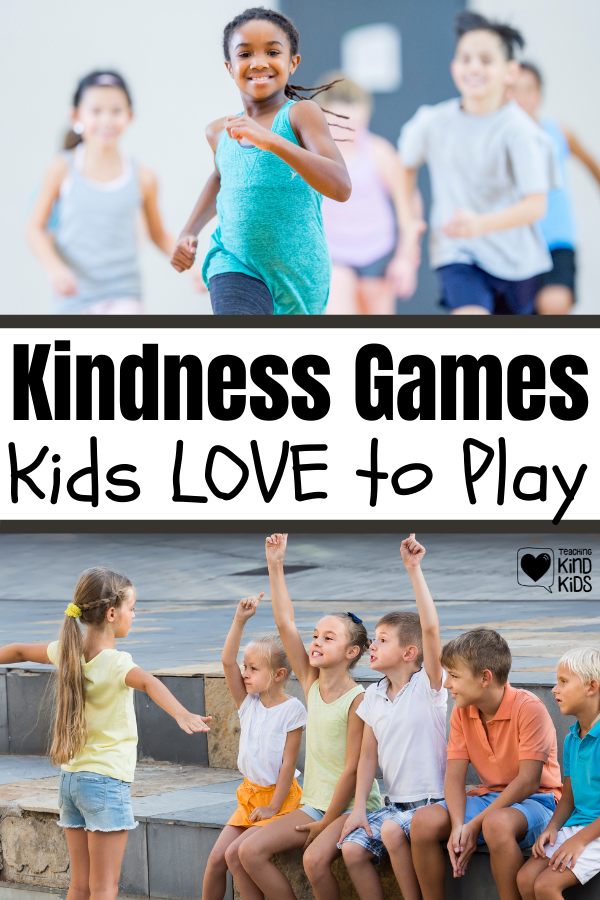
Why Teaching Social Emotional Learning is Crucial:
Teaching our kids social-emotional learning and concepts like sportsmanship, being thoughtful of others, and being an includer has a very valuable place in our homes and in our schools.
And while kindness needs to start in our homes, often it falls to educators to teach these concepts and reinforce these concepts.
Related: 8 Reasons Educators Should Teach SEL
More and more teachers know that students don’t only come to school to learn academics. If we’re teaching a child, we’re teaching the whole child and that includes their mental health and social skills.
Teaching students social emotional concepts and character education helps them become better students and increases their academic success because we teach them problem-solving skills, self-regulation skills, and social skills that improve their confidence and self-identity so they come to school ready to learn.
It also helps our students when we create a school or class environment that is positive and feels safe and welcoming so they know they can be themselves, raise their hand and give a wrong answer or give an out-of-the-box answer without being teased for it.
Related: How to Create a Positive Classroom Environment
We can do all of that by intentionally teaching our students how to be kind with Kindness Books, Kindness Emergent Readers, and daily conversations that encourage more kindness.
We can use Kindness Curriculum, Kindness Centers, Kindness Writing, create Kindness Crafts, and put up Interactive Kindness Bulletin Boards.
We can also use kindness games to help reinforce or help teach character education concepts.
Kindness Games Kids will LOVE to Play that Teach Kindness Concepts:
1. ‘Kind Kim’ Says
We love Simon Says for all sorts of reasons, but Kind Kim Says helps students decide what is kind and what is not. When Kind Kim (a teacher or a student) says something kind, kids will do it:
- air high five a classmate
- give a compliment
- smile
- wave
- cheer for a friend
- shake someone’s hand
- stand by someone new you haven’t played with in a while
- pick up a piece of trash on the ground
But, if Kind Kim says something unkind, students will NOT do it:
- stick out your tongue
- roll your eyes
- tell a secret
- say something mean
- point and laugh at someone
- tell someone they can’t play with you
- throw trash on the ground
2. Includer Bingo
We want our students to include, or invite other students to join in with them, sit with them, or play with them.
But it can be hard for students to remember to invite someone they’re not used to spending time with.
We can encourage our students to be an includer with our Includer Bingo. They’ll write in classmates’ names in each of the boxes and are then challenged to invite or include a different student each day. Five in a row wins or you can challenge them to make an ‘X’ on their boards or go for ‘blackout.’
Get your Includer Bingo gameboards here.
3. LRC: Left, Right, Center Kindness
I love the LRC Dice game which inspired this gross motor game to reinforce the concept that there’s more than one way to deal with tricky social situations they deal with in life.
Give students an issue they often face on the yard or in your classroom, and give them three options to deal with it, reminding them there is often more than one way to handle a situation and they have to choose what works best for them.
Someone is mean to you on the yard (Options: You tell them to stop, you walk away, you go find friends who kind to you).
You see someone breaking a rule at recess (Options: You ignore it if no one is getting hurt, you tell them to stop, you walk away so you don’t get in trouble too).
A classmate throws trash on the ground (Options: You tell them they dropped something, you pick it up and put it in the trash, you call their name and point to the trash.)
A friend falls and gets hurt (Options: You rush to help them, you run to get an adult, you hug them.)
A classmate has a toy you really want (Options: You ask for a turn when you’re done, you go play with something else until they’re done, you ask if you can play with them).
If they’re going to do option A, they go to the left of your classroom, yard, or kickball field. (Remember to use THEIR left, not yours)
If they’re going to do option B, they’ll head to the right (Remember to use THEIR right, not yours).
And if they would choose option C, they’ll head to the middle.
To tie this into PE standards and work on their gross motor skills, as they head to the left, right or center, you can have students skip, hop, bounce, tiptoe, jump, gallop, or walk backwards to their spot.
Once their in their spot, ask a few students to explain why they chose this option and ask these questions:
- Why did this option feel right for you?
- What would make you change to a different option?
- Have you ever had to make this decision?
4. Kind or Unkind Sorting Games
Students love holidays so much, the day after one holiday they’re asking when the next one begins.
We can lean into their interest and harness their excitement by connecting the holidays and seasons to social emotional learning with our kind or unkind sorts.
We have over 30 themes to choose from so your centers are constantly fresh and new to them as they sort the cards by kind or unkind actions.
You can follow up with writing and/or a worksheet to show what they know, but as with most things, if you call it a game, they’ll be excited to play it.
Students can play in small groups, independently, or as a whole class game.
Here’s a few Kind or Unkind Game themes you may love:
- Kind or Unkind Sort Holiday Bundle
- Kind or Unkind Sort Winter Bundle
- Kind or Unkind Sort Fall Bundle
- Kind or Unkind Sort Spring Bundle
- Kind or Unkind Sort Summer Bundle
5. Kind or Trash Kindness Games
Students love to play Kind or Trash because they get to put the trashy or mean concepts into a trash can.
Place the large cards on the table or on a bulletin board and show students there’s more than one way to show kindness. Then go through each of the smaller cards and ask students if it’s kind or if it’s trash.
If it’s kind, what kind of kindness does it represent? (There’s often more than one answer).
If it’s trash, make a big deal of throwing it away in a trashcan (we used a dollar store plastic trashcan we can reuse).
Get our Kind or Trash Game here (there’s a version for schools, homes, and Girl Scout troops).
6. Kind Charades
Playing Kind Charades is a great way to reinforce kindness lessons or concepts or kindness vocabulary words you’re learning as a class. And it’s perfect for when you have a few minutes before the bell rings.
Give a student an act of kindness and have them act it out for students to guess. You can play in teams or you can play as a whole class where everyone tries to guess.
Charade phrases to act out:
- helping someone carrying something heavy
- opening the door for someone
- waving to the custodian
- picking up trash that’s not yours
- returning a lost item to someone
- inviting someone to play
- saying yes to being someone’s partner
- helping someone who got hurt
- offering a crayon when someone needs it
- cheering for a friend who does something hard
7. 2 Kindness Games Using Dice
This is a great “game” for when students finish their work a little early and need something productive to do.
Offer them either the Kindness Cubes or Kindness Dice Game. The first die they roll will tell them the “who” and the second one will tell them the “what.”
8. Kindness Wordsearch
I used to love word searches as a kid. And my teachers would often give us ones that connected with the vocabulary words were working on for science, math, and social studies.
So you can connect your kindness concepts and kindness vocabulary with these word searches that are perfect for rainy days, Fun Fridays, or early finishers. We have an older student and younger student version.
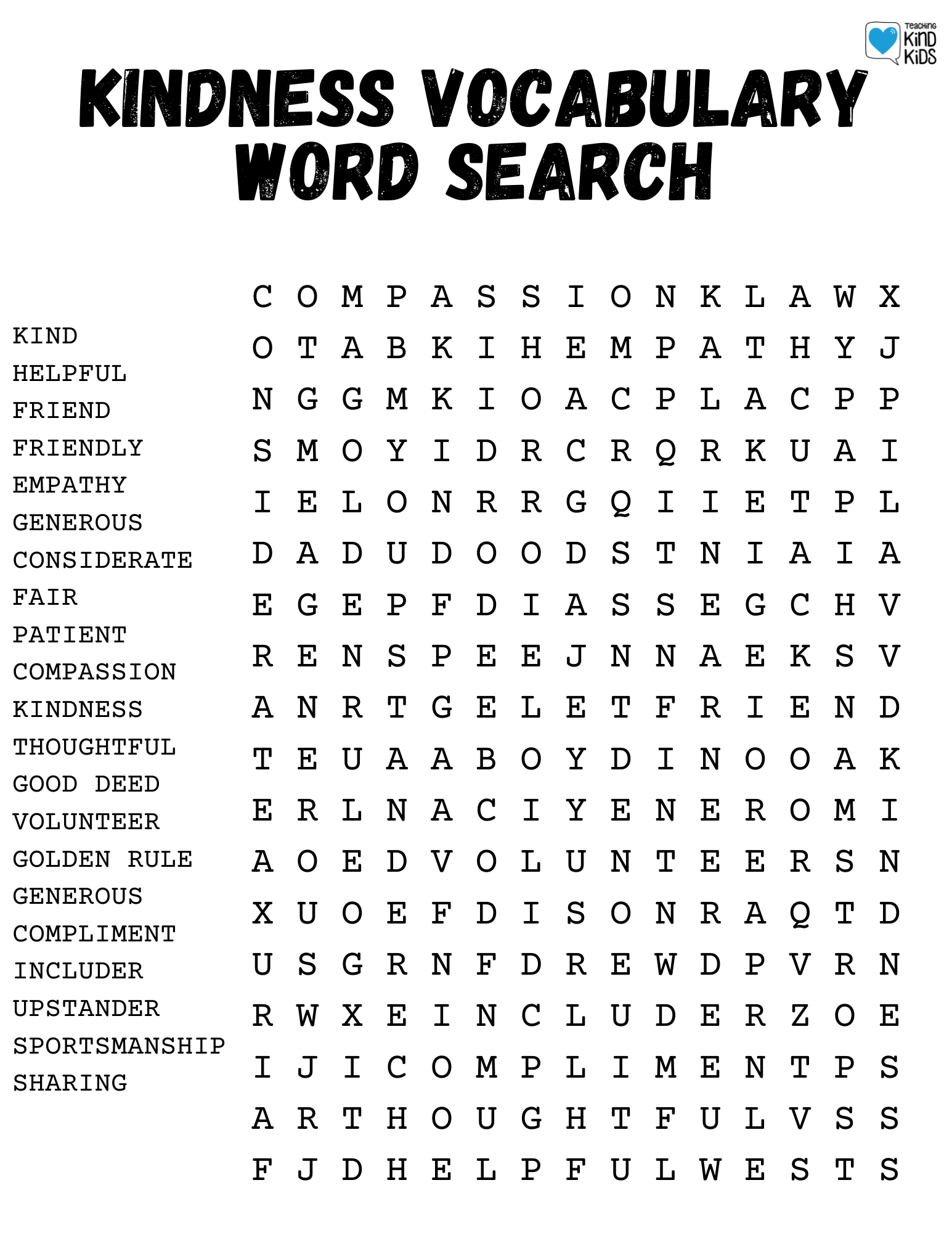
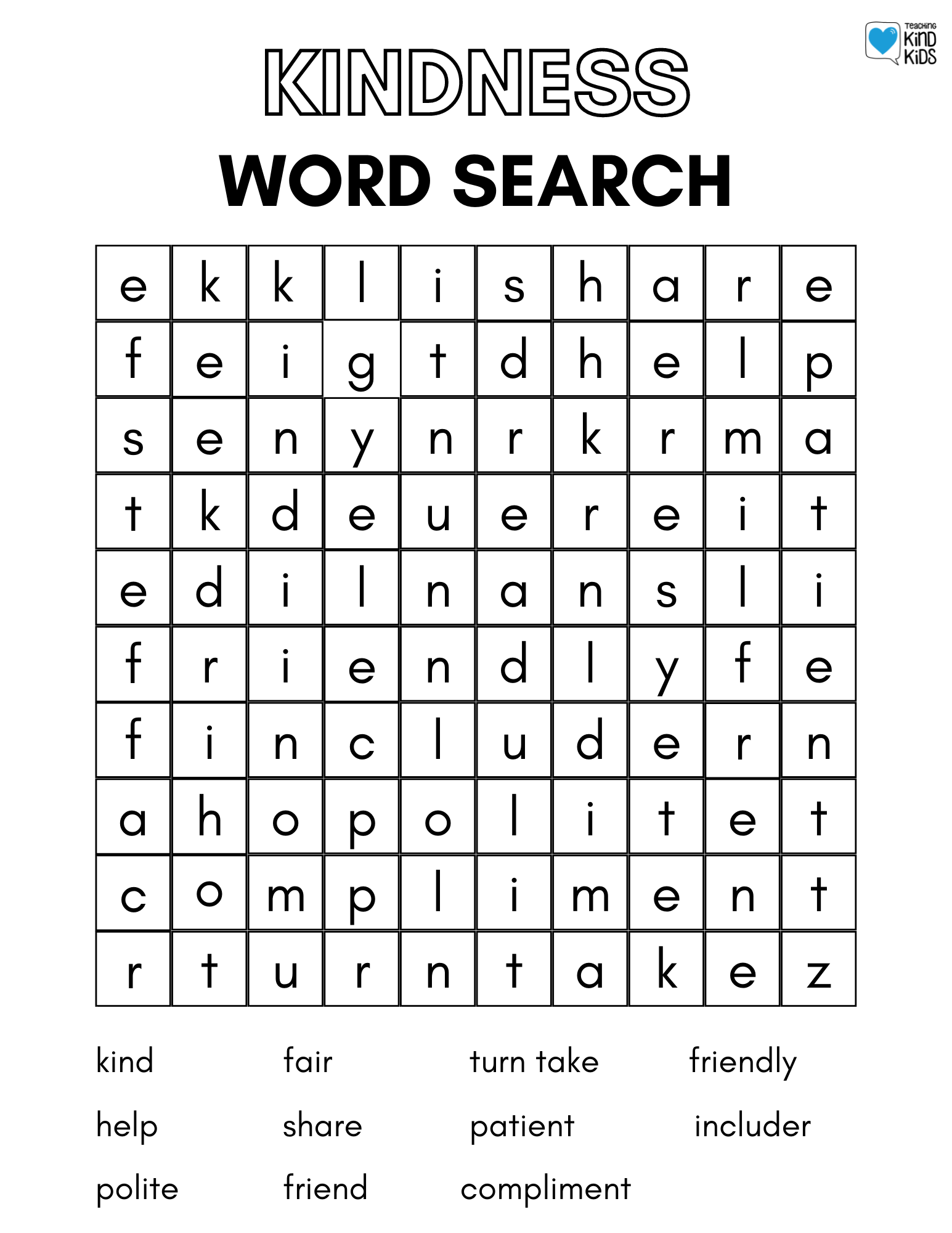
Get both Kindness Word Searches here.
9. Kindness Tic Tac Toe
Students love playing Tic Tac Toe, but with this version, they have to do the act of kindness before they can cross off their spot.
As soon as they do the act of kindness, they can mark their ‘X’ or ‘O’ and go for three in a row.
Get our Kindness Tic Tac Toe here.
10. Kindness Scavenger Hunt
Kids love a good scavenger hunt and we can have them hunt for anything we’re learning about from letters to colors to simple machines.
But if we’re teaching them about kindness, we love using this Simple, Normal, Every Day Acts of Kindness Scavenger Hunt.
They can do the act of kindness to check it off OR if they someone else do it they can check it off (because recognizing kindness around them is a helpful tool in learning what to do themselves).
The items on this list aren’t the “showy” loud acts of kindness that are typically labeled as Random Acts of Kindness.
Instead, they’re everyday, normal acts of kindness that tend to be quieter and often go unnoticed but add up to make kindness more of a daily habit...which is way more powerful than a once in a while big act of kindness.
Get our Kindness Scavenger Hunt here.
11. Sibling Kindness Games for Families
Raising Kind Siblings is not easy. But one way to make it easier is to make it a game and get them on the same team.
When our kids play on the same side, they have a vested interest in the success of the sibling because their success is tied together.
So in this Sibling Kindness Game, the only way to win is if both siblings work together to be kind to one another. And the prize for winning the game helps foster even more kindness in our homes between siblings.
Get our Sibling Kindness Game here.
Games make everything more fun, even loading and unloading the dishwasher. So if we can gamify something as awesome as kindness, it won’t become this awful thing they have to do…it’s something they look forward to doing.
Which will make any concept sink in faster.

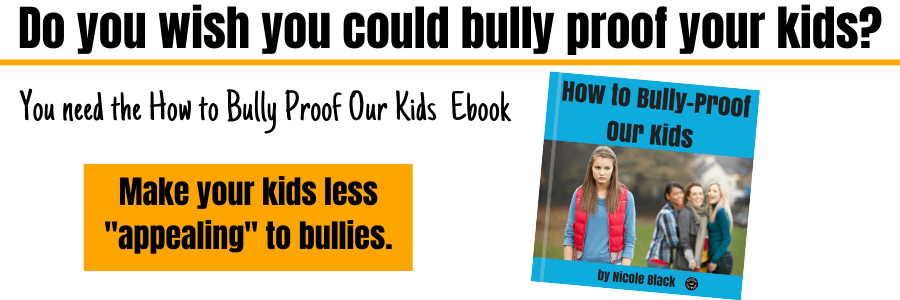
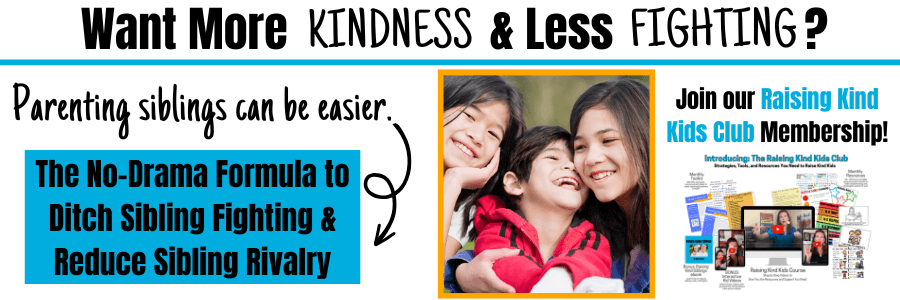
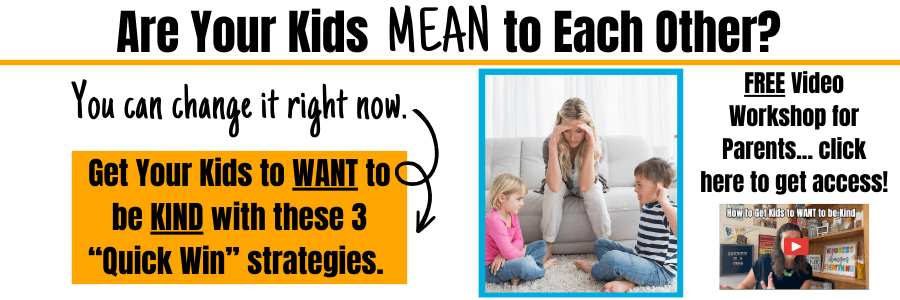
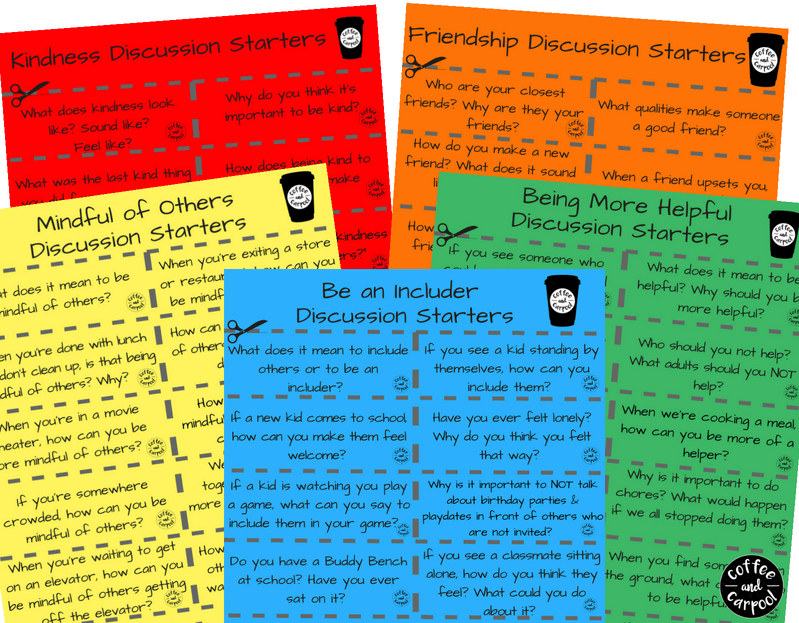
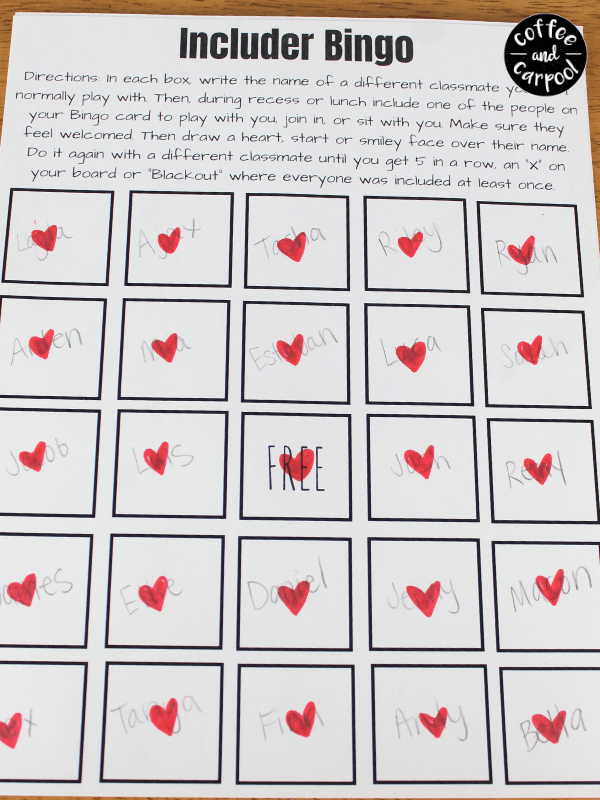
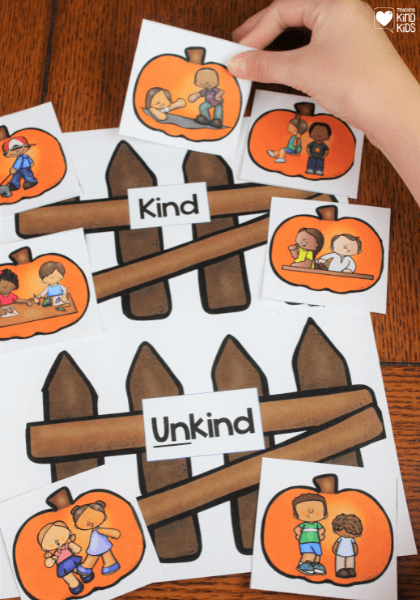
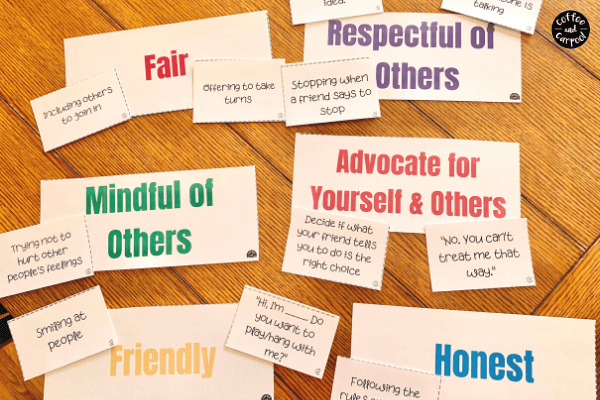
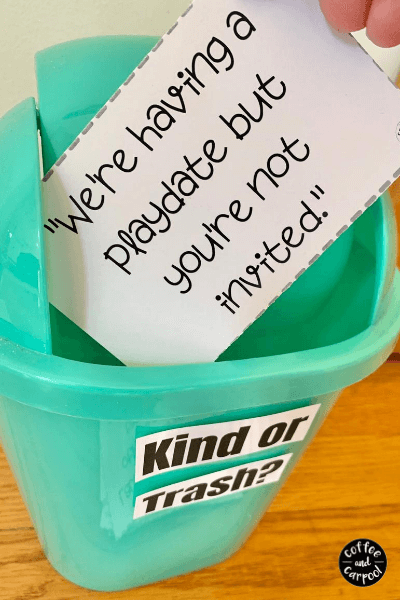
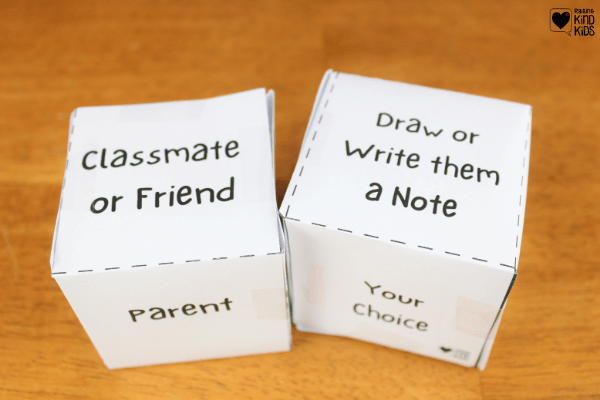

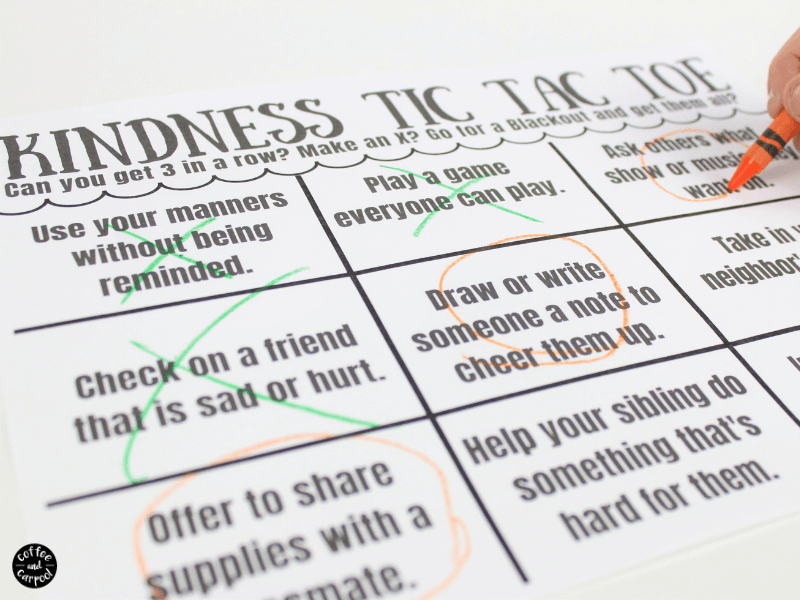

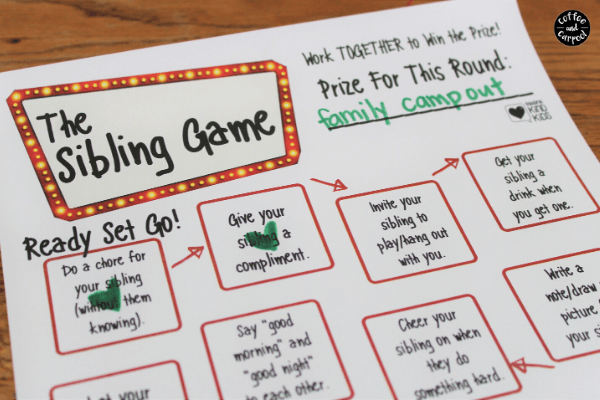
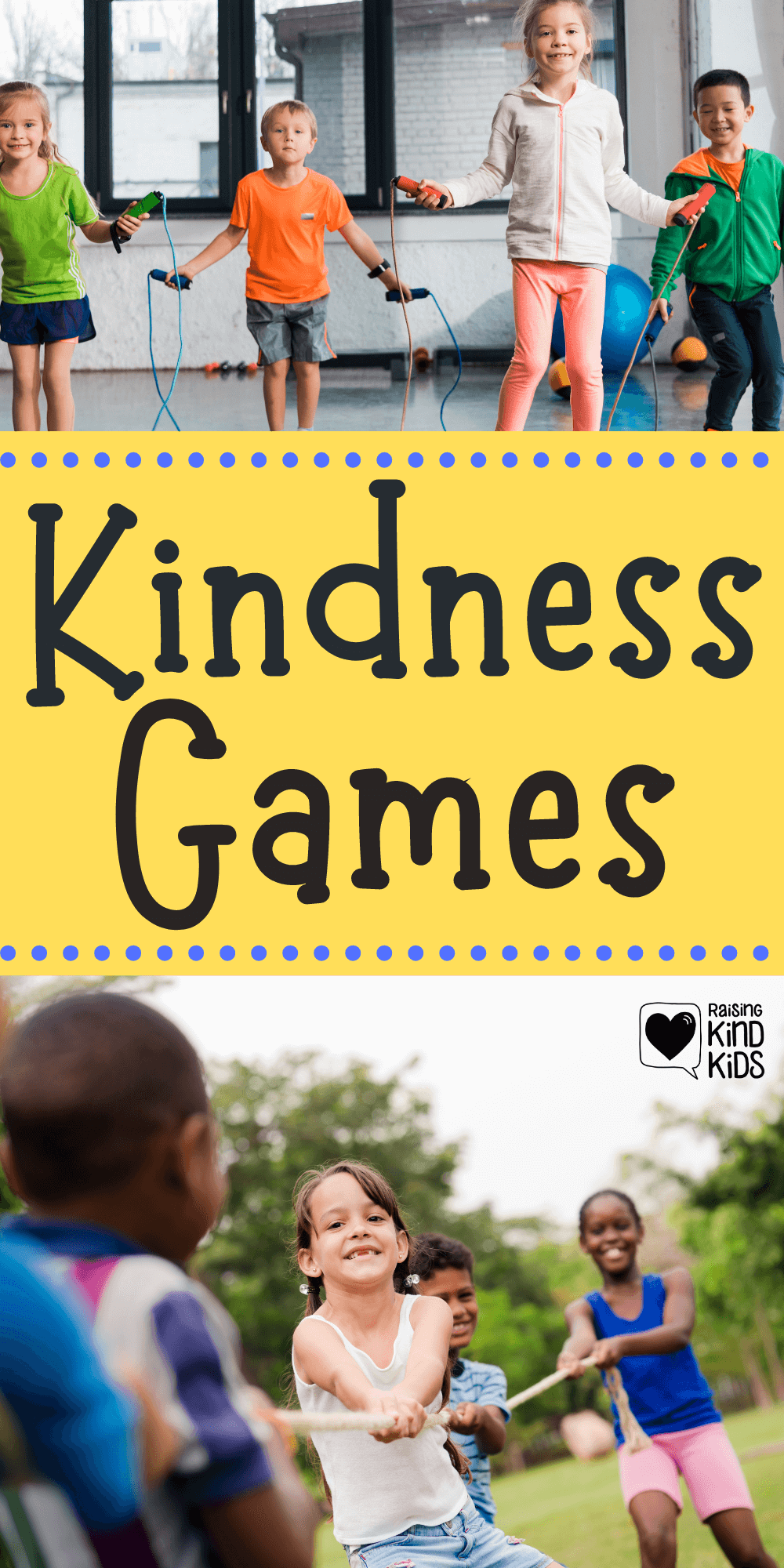
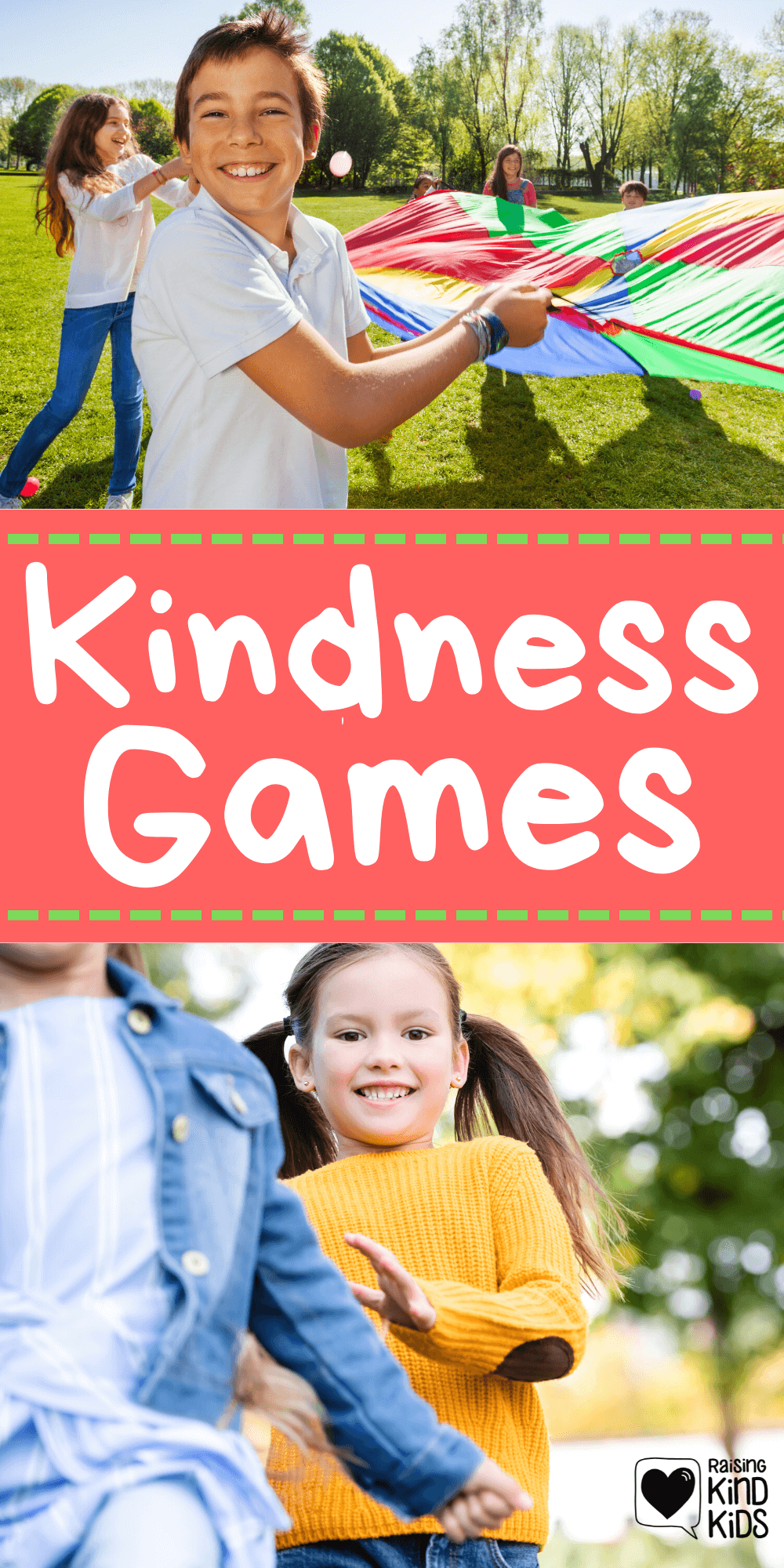
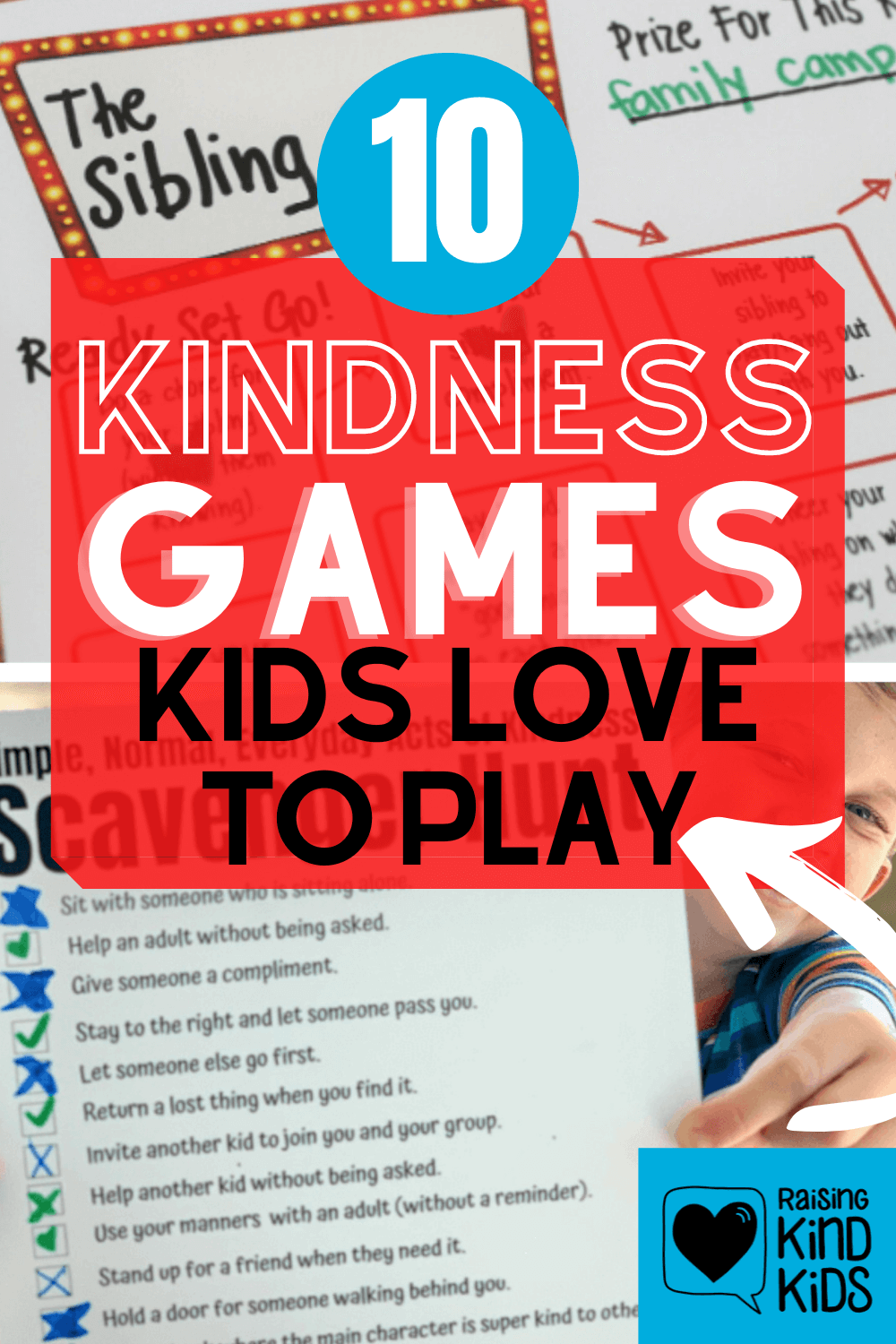
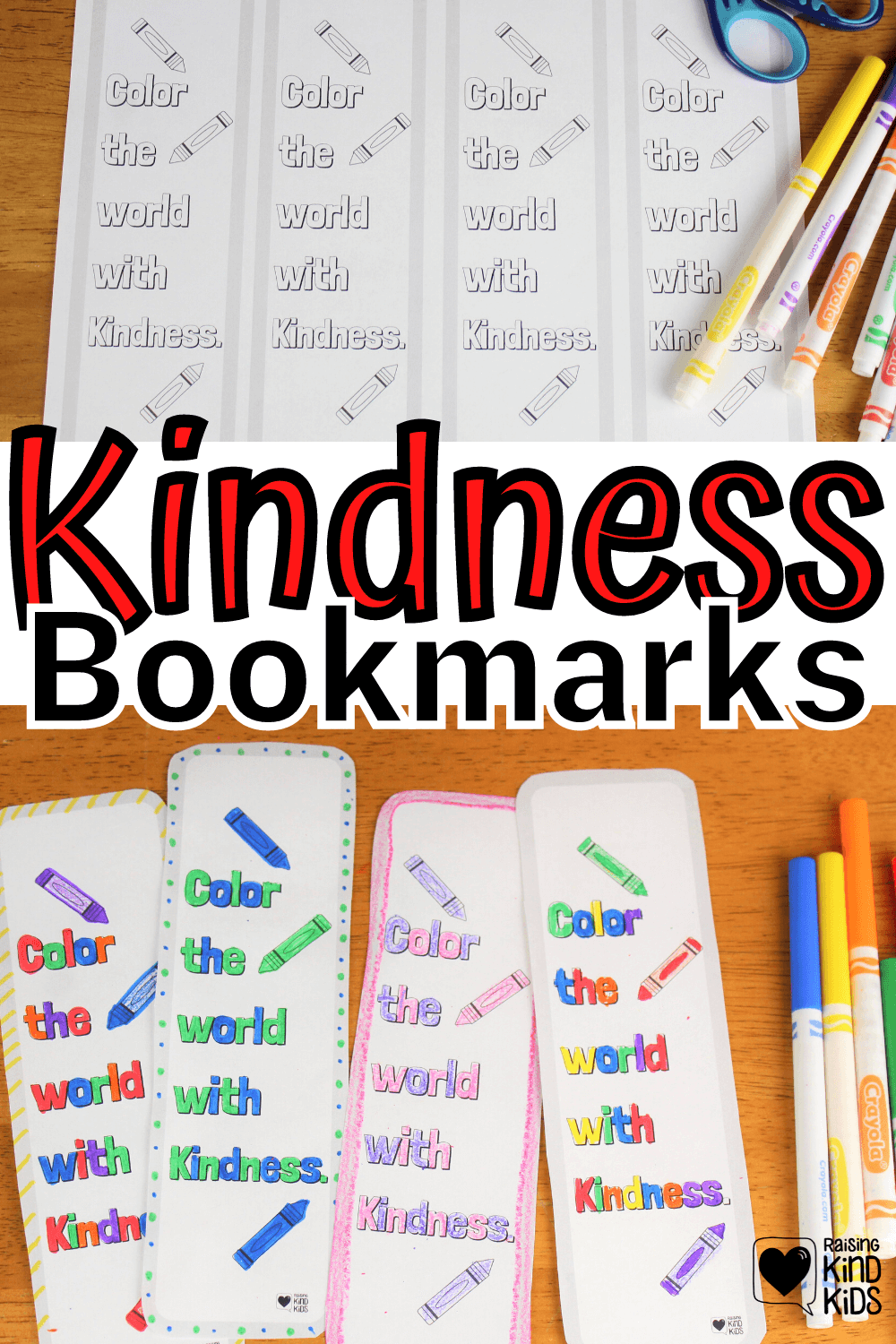
Leave a Reply